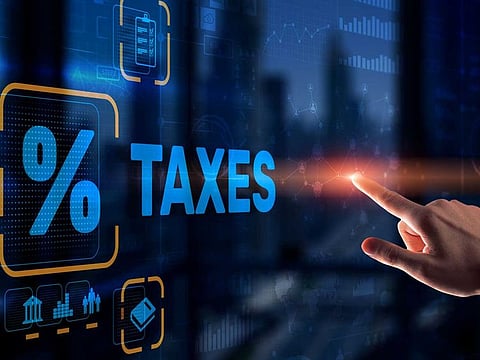UAE Corporate Tax: How to avail 0% tax for qualified free zone persons
UAE tax authorities raise awareness on key points, and more will be helpful

‘Special Economic Zones’ are a global phenomenon due to their role as economic growth drivers and for being foreign direct investment facilitators.
In the UAE, free zones operate under special decrees. They offer advantages like efficient infrastructure, 100 per cent ownership, repatriation of profits and capital, and tax exemptions. The cherry on top is the zero per cent corporate tax.
That said, the corporate tax exemption is conditional - and so it is crucial to understand the dos and don’ts.
Concessions to ‘qualified free zone persons’
The ‘qualified free zone persons’ include branches operated by non-residents in free zones, who meet conditions such as:
Qualifying income of a QFZP is taxable at 0 per cent, whereas non-qualifying income (including income from excluded activities) within the de minimus limit is taxable at 9 per cent.
Interestingly, any income from domestic Permanent Establishment (PE) - a place of business or other forms of presence of a QFZP outside a free zone - and income from immovable property in certain cases is taxable at 9 per cent separately.
Both income streams are not considered in the de minimis calculation. The basic exemption threshold of Dh375,000 does not apply to the taxable income of QFZPs.
Where the de minimis threshold is breached, a QFZP loses its tax holiday status for five tax periods, including the year of failure. It would be liable to 9 per cent corporate tax like a regular taxpayer.
Practical nuances
While the UAE Cabinet decision has clarified most aspects relating to tax holiday provisions of free zones, some issues need to be addressed for greater certainty.
1. Exclusions from QFZPs
Freelancers and individuals working under licenses issued by a free zone authority (FZA) are not covered in QFZP. It is unclear whether ‘natural persons’ refers only to individuals or also includes sole proprietors. Support service providers in the free zone - such as hotels, malls, and training or education companies - may be affected as they interact with individuals.
The coverage of extended boundary areas of free zones without a decree law may not be included in the qualified free zone. The respective free zone authority may provide guidance on whether a specific area or company within the Free Zone is covered for corporate tax benefit.
2. Issues around the distribution model
Initially, it was not clear whether the condition ‘in or from designated zones’ in qualifying activity should apply to the location of the distributor or the location of the goods. Further, whether a 0 per cent rate would apply or not in the case of bill-to-ship-to models - where goods do not physically move in and out of the free zone - was causing some concern.
Recently in a public awareness session by the ministry, it was clarified that QFZPs involved in distribution activity (where the title of goods is transferred) will be considered as being ‘in and from’ designated zone, even if goods are not physically moved.
Thus the same shall be considered as qualifying activity and income will be eligible for a 0 per cent tax rate.
However, the qualifying activity of distribution does not specify the source of goods procurement. It is unclear whether goods sold in or from the designated zone can be sourced from a mainland supplier.
And, the trading activity from designated zones covers only sales to wholesalers or retailers, not to end consumers.
3. Headquarters services- what exactly is covered?
It needs to be clarified as to what services would be considered a qualified activity under headquarter services. Taking guidance from the relevant activities of headquarters under Economic Substance Regulations (ESR), it is possible that services like consulting, advisory, advertisement, architecture, event management, and IT may not be covered in qualifying activities under headquarter services.
4. Permanent establishment risk
The permanent establishment risk needs to be assessed for entities with employees working from outside free zones, agents, and directors negotiating and concluding contracts outside free zones.
Activities may be outsourced in a free zone but with appropriate supervision for economic substance requirements. Election of the option to forgo the tax benefit of 0 per cent should be exercised carefully.
Where a QFZP opts for 0 per cent tax rate, the same cannot be a part of a tax group. In considering transactions with other free zone persons, the recipient must be the beneficial owner of those goods/services. (That is, the recipient should have the right to use and enjoy and not merely pass on these goods/services to another party.)
To mitigate any uncertainty for a tax payer, obtaining additional clarifications from the Federal Tax Authority (FTA) is crucial. To fully leverage the tax advantages, it is necessary to assess the overall business activities of QFZPs.
It should be noted that apart from corporate tax benefits, free zones also offer concessions in terms of VAT, customs, and excise taxes. Each relevant law has its own distinct set of conditions.
Therefore, conducting a comprehensive compliance check encompassing all tax laws, free zone decree bylaws, and ESR is of utmost importance.
As per the OECD Pillar 2 proposals, some multinational enterprises operating in UAE free zones could also be liable to a higher rate of corporate tax. This legislation is awaited for further analysis.
Sign up for the Daily Briefing
Get the latest news and updates straight to your inbox




